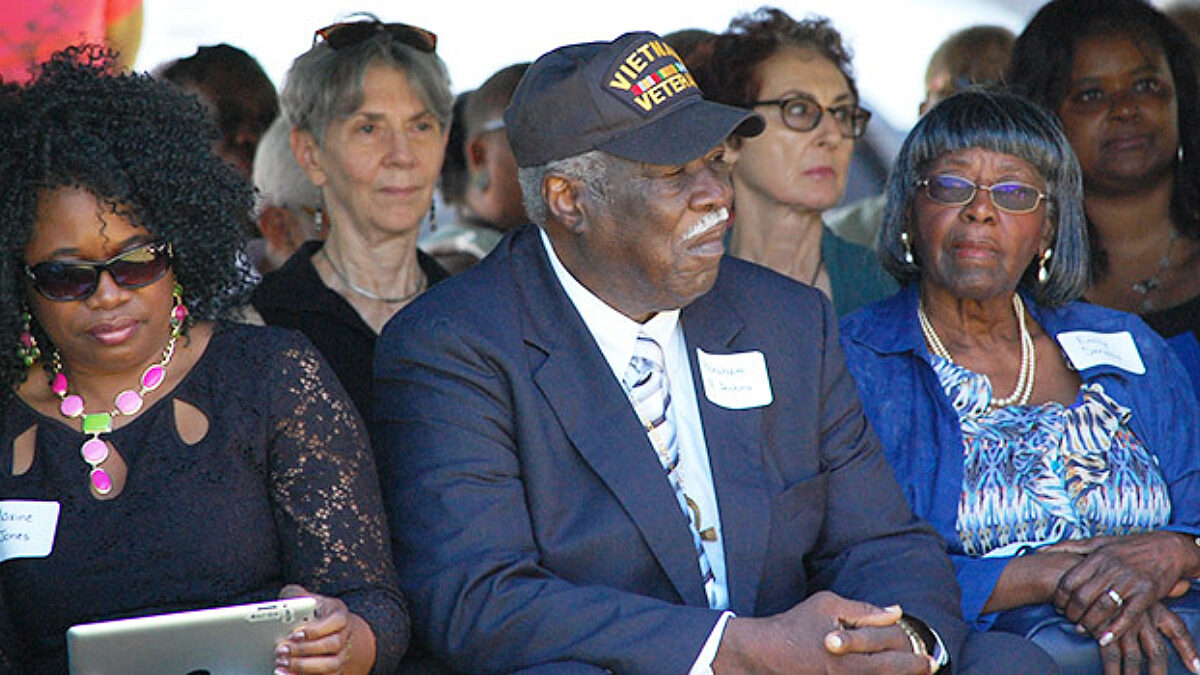
A radical act of personal reparations
By Elaine Jenkins
Merriam-Webster defines the word “serendipity” to mean “the faculty or phenomenon finding valuable or agreeable things not sought for.”
That definition was made concrete for me around 2010, when I attended the Peace Conference held at the United Methodist Retreat Center in Lake Junaluska, North Carolina. During one of the sessions, I was seated next to a Caucasian woman, Sara, who shared my surname. When I told her I was born and reared on Johns Island and still claimed it as my place of residence, she shared with me her paternal ancestors were owners of a rice plantation on Johns Island before the Civil War.
She and I probably had the same thought: My ancestors were more than likely enslaved on that rice plantation owned by her paternal ancestors. Hence, the same surname.
Sara Jenkins and I remained in communication over the years. I learned that she had worked as an art historian and book editor, that she is a published author and that she is the owner of a small publishing company. I also learned she is a Zen student of more than 30 years and has worked on the issue of racial reconciliation for many years.
When the back panels of our parents’ 1966 Volkswagen microbus were selected to become one of the permanent exhibits for the new Smithsonian National Museum of African American History and Culture, I invited Sara to travel to Charleston to attend the 2014 sendoff hosted by the City of Charleston. She came with a friend.
Sara wrote about our initial encounter in an article that is one of many included in the book “Slavery’s Descendants: Shared Legacies of Race and Reconciliation,” edited by Dionne Ford and Jill Strauss and published by the Rutgers University Press in 2019.
When Sara learned I had resigned my position as director of planned giving with Africa University, a United Methodist-related institution of higher learning located at the Methodist mission site at Old Mutare, Zimbabwe, she informed me she wanted to establish a scholarship at Claflin University, another United Methodist-related institution of higher learning located in Orangeburg, in memory of my parents and designated for the young men and women of five of the Sea Islands of South Carolina who yearned for a college education. She requested my assistance to achieve her goal.
In her letter to several of her close friends inviting them to contribute to the scholarship fund, Sara wrote in part: “Nothing can repay the debt to people who were enslaved, and my purpose is suggested in these words from Dr. Tressie McMillan Cottom (The Sun, Feb 2020): ‘Nobody needs reparations more than white people. It will end up freeing white people more than it will benefit any individual black person.’ To me, personal reparations ... address the moral need of white people. The possibility of small-scale individual contributions, it seems to me, deserves wider attention.”
The Jenkins family is honored and humbled by this singular radical act of generosity, which will provide scholarship support for the young men and women of the five Sea Islands who yearn for a college education.
For others who may wish to contribute to the Esau and Janie B. Jenkins Endowed Memorial Scholarship Fund, please make your check payable to Claflin University, indicate on the memo line that it is for this scholarship fund, and mail it to the attention of Michelle Manning Henry, Claflin University, 400 Magnolia Street, Orangeburg, SC, 29115. Or you may give online: https://alumni.claflin.edu/jenkins-memorial-esf.
Jenkins writes for the Esau and Janie B. Jenkins Family.